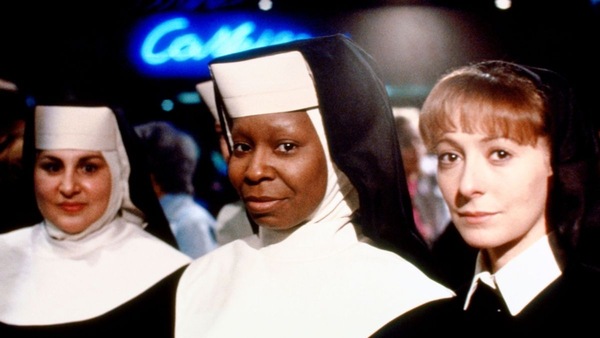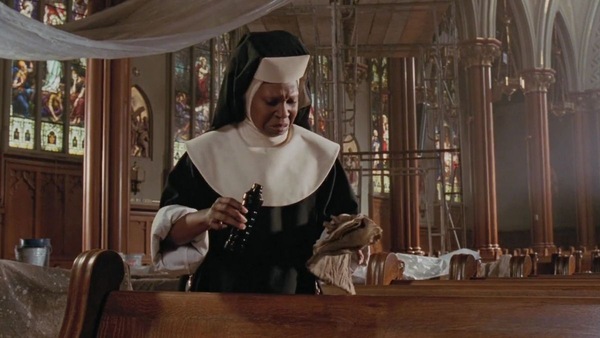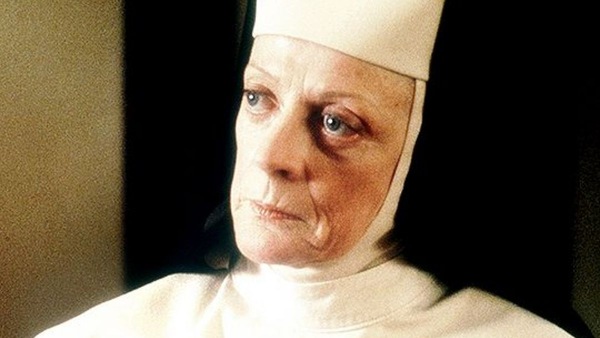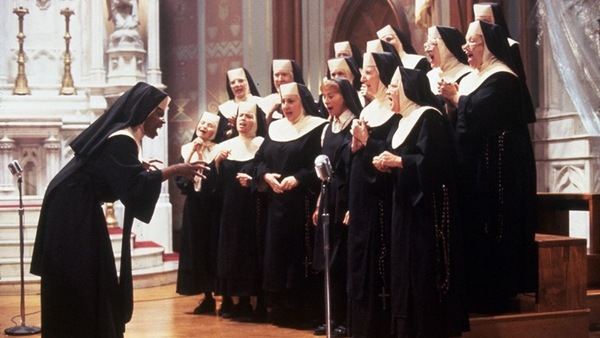Sister Act, Whoopi Goldberg’s 1992 musical comedy, was a clarion call for change with a side of humour
Sister Act is returning for a third instalment soon, with Tim Federle nabbed as director and Madhuri Shekar as the writer on the film. As the new project, fronted by Whoopi Goldberg, gains momentum, exploring why the first film is still etched in public memory.

Last Updated: 01.28 PM, Oct 07, 2021
Whoopi Goldberg’s 1992 musical comedy Sister Act was about a lounge singer who happens to be placed in protective custody in a convent. Sure, it boasted of a terrific soundtrack and was relentlessly hilarious, but Sister Act also challenged the Catholic Church and spoke about ethnicities and intersectional feminism.
Much like The Sound of Music, the Sister Act was more interested in their identities as women beyond just being nuns. These women are devout followers of the Christian doctine, but beyond that, they are also regular women. As a matter of fact, writer Paul Rudnick was keen on satirising the chaste figures and the orthodox Catholic church by making a heroine of the narrative a showgirl, embodying “the raunch, sex and the unstoppable gospel of cheap showbiz.” “It would be pop versus Pope; and pop, in a barrage of sequins, wisecracks, and Marlboro Lights, would win,” Rudnick later wrote in The New Yorker. Although the final product was much tamer, coming from the Disney stable, there was an obvious seed of rebellion there.

The story was centred around Deloris Van Cartier (Whoopi Goldberg), a certain casino singer who witnesses his boyfriend’s cronies murdering a man, and is hidden by the cops in one place that one would never expect to find her — in a convent. Deloris, who attended the convent as a child and realised she wasn’t meant for the austere life, soon finds herself at loggerheads with Reverend Mother (Maggie Smith) and the kind of lifestyle she is expected to lead. After several attempts by the Church hobnobs to get rid of the rulebreaker, Deloris is eventually tasked with rejigging the convent choir.
In this world trapped in rules and mores, Deloris finds a companion in Mary Robert (Wendy Makkena), the shy, meek nun. There are several scholars who have posited that Sister Act is, in fact, a lesbian rom-com. Deloris and Mary bond over a shared sense of isolation as they discuss their childhood, fears and regrets.
Sister Act was uninhibited and audacious. Right after their first singing gig, Deloris declares that their new singing enterprise is even “better than sex.”

Reverend Mother may have shuddered at the declaration, but the film was steadfast in not mincing its words. Goldberg was pitch-perfect as the irreverent disco queen turned nun, boogie-woogie-ing with absolute abandon. In one scene, where Reverend Mother tells her to reconsider her life and decisions now that she is part of the convent, she bluntly tells her that before entering the church premises, she not only had a “career and friends”, but also clothing that fit. She isn’t particularly excited about her new peers’ lives, or their identities as nuns.
She is also shocked by the sheer lack of Black women in the convent. She says, “there’s there’s nothing but a lot of white women dressed as nuns.” None of these jibes is particularly acrid, but the fact that they were a part of the narrative makes the film braver than earlier films about the church.
She learns that there are three vows every nun should take — of poverty, of obedience and of chastity. Not that she was too keen on jumping on the poverty and obedience bandwagon, but the moment she is told she has to live a life of “chastity,” Deloris steadfastly bows out.

How many mainstream comedies had the gall to liken nun’s attire to the body of a penguin? Not many, one would presume. Even the second instalment of the blockbuster movie was a tamer version of its outrageously funny and wicked predecessor.
The movie also cemented Goldberg’s position as a bankable Black actress in Hollywood. Although Goldberg landed her first Academy Award nomination with Steven Speilberg’s The Color Purple in 1985, the back-to-back Sister Act films, in 1992 and 1993, made her the highest-paid actress in Hollywood during the 90s. She was not just a critic and awards darling (Goldberg is the only Black actress to be a part of the elite EGOT — Emmy, Grammy, Oscar, and Tony Awards — winning tribe), with over 150 films to her credit, Goldberg became the one actor every director wanted to work with after Sister Act.
At the time of its theatrical release, critics dismissed Sister Act as a moderately funny piece with crackling one-liners. On closer inspection, Sister Act proves that it questioned every oppressive system with veiled humour, that sounded almost too nonchalant to be taken offence to. It was clever to make Goldberg the mouthpiece for its rebellion, and the actor ensured her character never seemed too threatening for the religious or the then social order. It is perhaps safe to say such a film would come under the scanner of the Twitter moral police now, who would label it as purposefully derogatory in a breath. Perhaps, this is why Sister Act remains a pathbreaking movie even in 2021. It was about the act of music as much as it was about the act of dissent. Subtle, yet effective.
